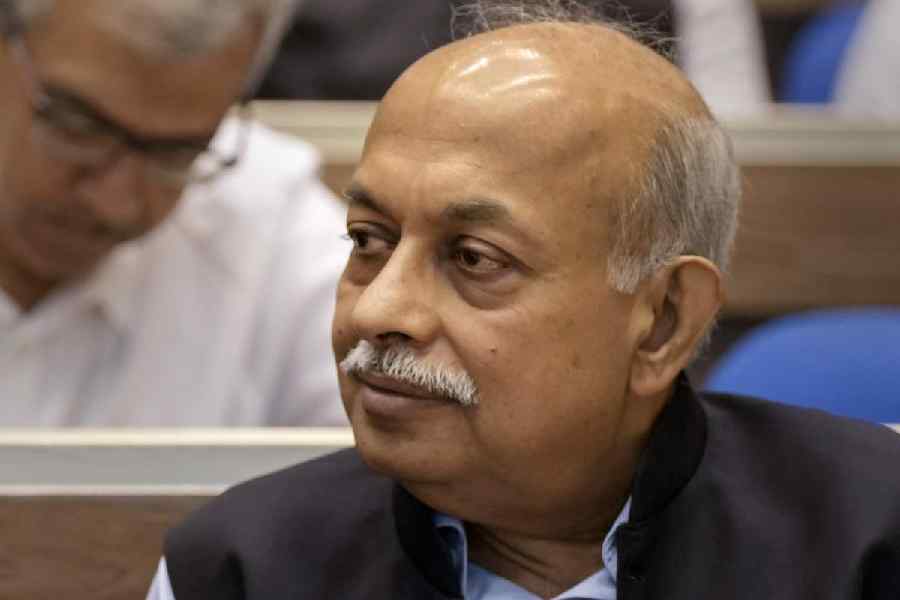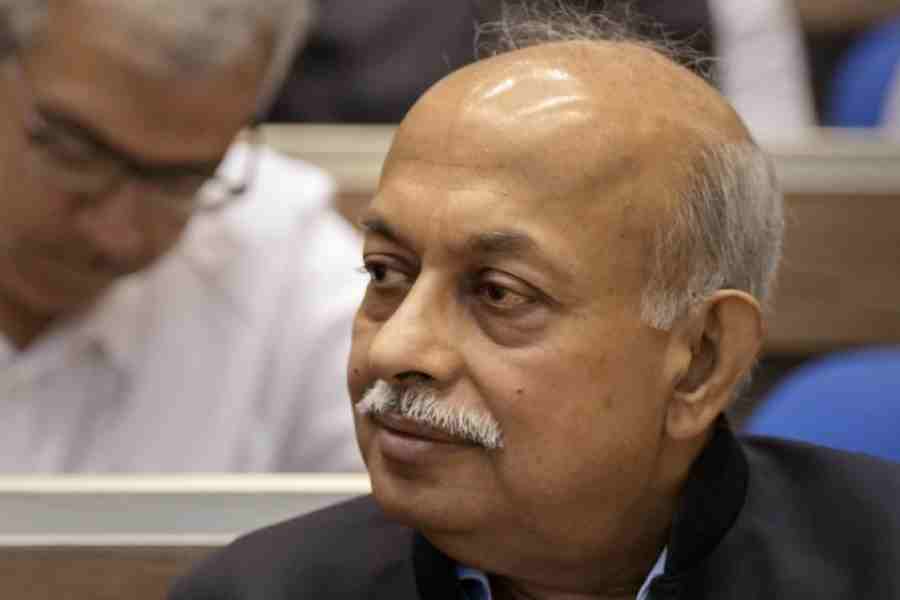The Enforcement Directorate is only one of several federal agencies that the Financial Intelligence Unit within the Department of Revenue consults during a peer review by the Paris-based Financial Action Task Force (FATF), the global watchdog on money laundering and terror financing.
This crucial fact was not adequately highlighted or was glossed over by the Centre while making a strong pitch before the Supreme Court for a third tenure extension for ED director Sanjay Kumar Mishra. A lawyer for a petitioner did try to draw the court’s attention to the point.
On Thursday, the apex court permitted Mishra’s extension till September 15, taking into consideration “the larger public interest”, after the Centre contended that his continuation was essential to complete the FATF review and ensure that India did not stumble during an intense scrutiny of its regulatory processes to check money laundering and terrorist financing.
The FATF review will take place on November 4, which means that the ED chief will not be around when the FATF experts come to India. This then begs the question about Mishra’s role and contribution to the entire process and whether the extension was sought on an issue of public interest in a way that masks the real intent behind the charade. The peer review of each member-nation is conducted “on an ongoing basis to assess levels of implementation of the FATF recommendations and provides an in-depth description and analysis of each country’s system for preventing criminal abuse of the financial system”, according to the FATF.
The Financial Intelligence Unit-India (FIU-IND), which is headed by an additional secretary in the Department of Revenue, is the agency that oversees the entire process. It is responsible for receiving, processing, analysing and disseminating information relating to suspect financial transactions to enforcement agencies and foreign FIUs that will be interacting directly during the peer review in November.
The Centre had tried to project that Mishra’s presentation for the peer review was critical for the FATF meeting as he had been involved in the process for a long time.
Owing to the Covid-19 pandemic, the peer review of India’s systems and processes had been postponed. After the onsite assessment in November, an FATF Plenary discussion is scheduled for June 2024, which means the onsite step is not the final stage in the review process.
Officials pointed out that a country is judged on 40 parameters relating to law, justice, revenue, banking, and insurance, as well as nine other aspects relating to terror financing. The ED’s remit is just one of many.
The FATF website says the lead ministry or authority for FATF is the Department of Economic Affairs. The other key authorities are the Central Board of Excise and Customs, FIU and the Union law ministry.The FIU get inputs for the parameters from the Enforcement Directorate, Income Tax Department, Directorate of Revenue Intelligence, Financial Intelligence Unit (FIU), CBI, Customs Department, market regulator SEBI, banking regulator RBI and insurance regulator IRDAI among others.
The last time the FATF took up a review of India was in 2010 when a mutual evaluation was done. The FATF review report pointed out that a total of 49 prosecution complaints had been filed and the values of properties under attachment were $65,000.
However, the report raised concerns about the conviction rate. “The absence of any ML (money laundering) conviction remains a serious effectiveness issue,” it had said.
Since the Prevention of Money Laundering Act (PMLA) came into force in 2005, nearly 6,000 cases have been filed till now. There has been a conviction in 24 out of 25 cases in which a Prevention of Money Laundering Act trial was completed till now. The ED could project that it has a conviction rate of 94 per cent.
Finance ministry sources said that between 2018-19 and 2021-22, cases registered by ED rose by 505 per cent.
The ED had recorded 195 cases in 2018-19 which went up to 1,180 in 2021-22.
According to the finance ministry’s own data, only 112 searches were carried out by ED during 2004-14. This resulted in the attachment of proceeds of alleged crime worth Rs 5,346 crore. However, during 2014-22, the number of searches rose to 2,974, an increase of 2,555 per cent, which resulted in the attachment of proceeds of alleged crime worth Rs 95,432.08 crore. The spike in raids and attachments in proceeds had prompted the Opposition to cry foul and slam the government for targeting its political rivals.
The government and regulators, with an eye on FATF parameters, have been carrying out changes to ensure that the country maintains the top-tier rating. Since January, the market regulator Sebi has tweaked a number of rules to meet FATF requirements. It has made chief executives of broking houses directly responsible for monitoring suspicious transactions.
The Centre’s move to cast reporting obligations under PMLA on practising Chartered Accountants (CAs), Company Secretaries (CS) and Cost Accountants (CWAs) on specified activities undertaken by them for their clients is a direct outcome of India’s efforts to conform to the recommendations of the FATF.
While India is compliant with FATF regulations, any gaps found in its preparedness to combat money laundering could lead to adverse comments or, at worst, impact its rating and make it costlier for global firms to do business in the country.
“Any drop in ratings can affect India and its institutions’ ability to do business with global financial institutions,” officials said. The FATF rates India ‘compliant’, the highest of its three-tier rating scale that includes ‘grey’ and ‘black’.Officials pointed out that during this peer evaluation, Indian financial regulators and enforcement agencies are expected to showcase their action-taken reports and dossiers for the enforcement, regulatory and investigative work undertaken by them under the anti-money laundering law. It is also expected to highlight instances where they have been able to check criminal tax evasion and the efforts that have been made to strengthen the CFT (combating financing of terrorism) regime.
During their onsite visit, the FATF evaluation team will “verify and assess” whether the systems in place are effective or not. The assessors will talk to government and private entities in order to evaluate a country’s performance.
During such evaluation, various critical aspects are expected to be evaluated to determine India’s position on various recommendations and further improvements to be carried out, including assessment of applicable legislations such as PMLA Act, PMLA Rules, Unlawful Activities (Prevention) Act, 1967, and effective implementation of such laws, officials said.











